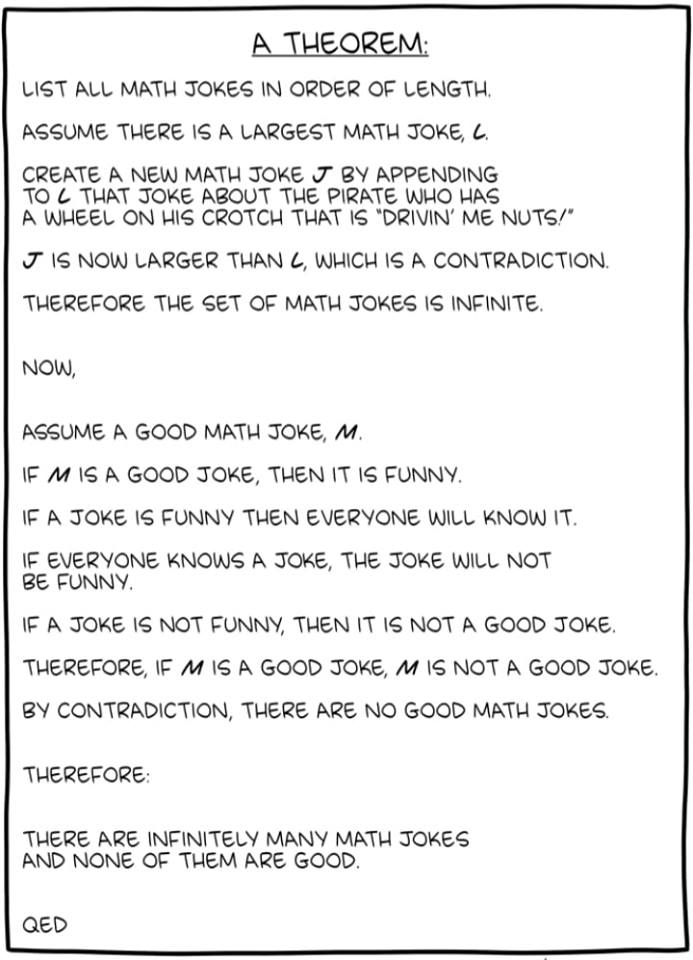There is a famous “math joke” known by the “Theorem of infinite math jokes”, as you can see below:

Ok, I said there is a math joke but not that it was funny.
But the aim of this post is not to laugh, but to discuss some errors in this theorem.
First let’s look at the idea that there is a largest math joke named L, and that when we insert in the end the Pirate who has the wheel on this crotch that is “drivin me nuts!” we would be creating a new math joke J, and J is the new largest math joke, since we can always create a new one from the insertion of this excerpt, and with this, there are infinite math jokes. Let’s see, creating infinite math jokes is not so complex and in fact does not need a construction as strange as “the largest math joke”. To demonstrate I will then create infinite math jokes from the structure of this joke:
“What did the Two say to the Thousand? You may be big, but not two!”
So by keeping this joke structure aside from the word in bold, we can build jokes for any natural number greater than 2, for example:
- “What did the Two say to the Thousand and one? You may be big, but not two!”
- “What did the Two say to the Thousand and two? You may be big, but not two!”
- “What did the Two say to the Thousand and three? You may be big, but not two!”
- “What did the Two say to the Thousand and four? You may be big, but not two!”
…
Thus, since the set of natural numbers greater than 2 is infinite, there are infinite math jokes.
Another contradiction in this theorem is the definition that if M is a good joke, then M is funny, and if M is funny then everyone knows it. But if everyone knows the joke then it is not funny, and if it is not funny, then it is not good. The problem here is that the set of good jokes is empty, since any good joke will be a joke not good, so there can be no good joke.
The intention of the theorem was to be a joke and proof that there are endless mathematical jokes and none are good. But failed to build this definition of good joke. One way to correct this definition and not change the purpose of the theorem is to define a joke as not funny if everyone knows it. A condition sufficient to ensure that a given M joke will not be funny, if everyone knows M.
With this, we can arrive at the desired result. Taking the joke I used to create endless mathematical jokes just by modifying the bold factor by a natural number greater than 2. So we all know what the infinite mathematical jokes are since we know the natural numbers. And so we have endless mathematical jokes that are not funny.
